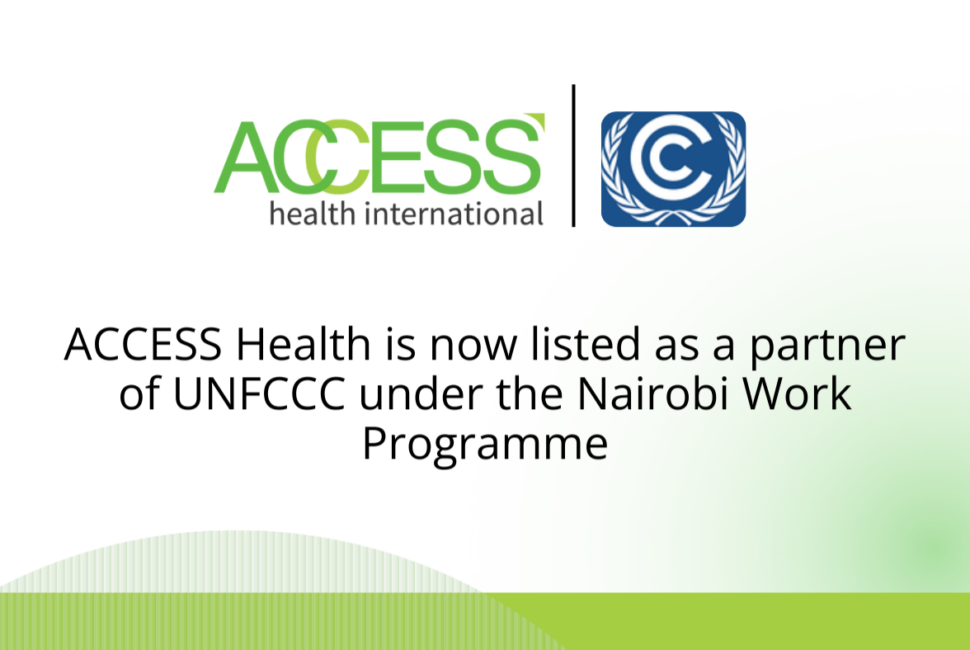ACCESS Health Partners with United Nations Framework Convention on Climate Change to build climate-resilient health systems

ACCESS Health International is proud to announce its partnership with the UNFCCC Nairobi Work Programme (NWP) as a Knowledge-to-Action Hub Partner. This collaboration signifies an important step forward in our unified effort to combat the escalating challenge of climate change and its detrimental effects on global health.
The NWP serves as a cornerstone program, specifically designed to support developing nations disproportionately susceptible to the repercussions of climate change. The program fosters the development of adaptation strategies, empowering these nations to cultivate resilience within their systems. This aligns seamlessly with ACCESS Health International’s unwavering commitment to achieving global health equity.
As a Knowledge-to-Action Hub Partner, ACCESS will strategically leverage its comprehensive expertise to contribute in several critical areas:
- Building Resilient Health Systems: We will actively share our knowledge and experience in fortifying healthcare infrastructure and revamping service delivery models. This will enhance their capacity to withstand the disruptive forces unleashed by climate change.
- Bridging Knowledge Gaps: Through collaboration with leading experts within the NWP network, we will strive to identify and address crucial knowledge gaps in the field of climate and health. This collaborative research will play a pivotal role in informing future adaptation strategies and policies, ensuring they are grounded in robust evidence.
- Advocacy for Increased Resources: ACCESS will champion the cause within the NWP framework, advocating for a significant increase in both financial and technical resources. This will bolster health adaptation efforts in developing countries, empowering them to confront the challenges they face.
By fostering a collaborative spirit with the NWP and its esteemed partners, ACCESS Health International is confident that we can make a substantial and lasting impact. Together, we can empower vulnerable communities to not only be better prepared for the devastating health consequences of climate change but also respond to them effectively. Ultimately, this collaborative effort has the potential to safeguard the well-being of millions around the world.

